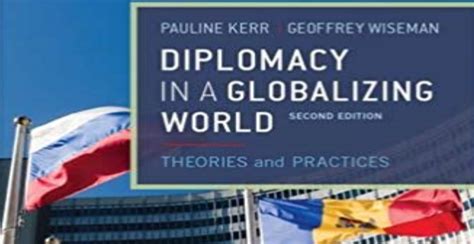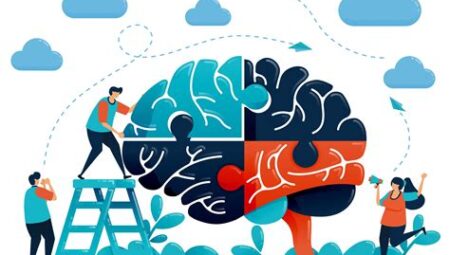In today’s interconnected world, international diplomacy plays a crucial role in maintaining peace and stability among nations. From the historical evolution of diplomatic relations to the key players and methods involved, understanding the dynamics of global relations is essential for navigating the complexities of international diplomacy. In this blog post, we will explore the different aspects of international diplomacy, including the influence of cultural differences, diplomatic channels and protocols, and the challenges faced in a globalized world. We will also delve into the future of international diplomacy and its role in peacebuilding efforts. Whether you are a student of political science, a professional diplomat, or simply curious about the intricacies of global relations, this post aims to provide valuable insights into the world of international diplomacy. Join us as we unveil the fascinating world of international diplomacy and its importance in shaping our global landscape.
Table of Contents
Understanding International Diplomacy
International diplomacy is the practice of managing international relations through negotiations, treaties, and alliances. It involves the use of diplomatic methods and negotiation techniques to resolve conflicts and promote peace among nations. Diplomats play a crucial role in representing their countries and safeguarding their interests in the international arena.
The historical evolution of diplomatic relations dates back to ancient times when city-states and empires engaged in diplomatic exchanges to secure trade routes, form alliances, and avoid conflicts. Over the centuries, diplomacy has evolved to adapt to the changing geopolitical landscape, technological advancements, and the rise of new global challenges.
Key players in international diplomacy include heads of state, foreign ministers, ambassadors, and international organizations such as the United Nations, European Union, and NATO. These actors work together to address global issues, mediate disputes, and promote cooperation among nations.
Understanding international diplomacy requires a deep knowledge of cultural differences, diplomatic protocols, and the impact of globalization on diplomatic relations. It also requires diplomats to navigate complex geopolitical landscapes, manage crisis situations, and promote dialogue and mutual understanding among diverse cultures and nations.
Historical Evolution of Diplomatic Relations
The historical evolution of diplomatic relations can be traced back to ancient civilizations such as Egypt, Mesopotamia, and China, where envoys were sent to neighboring states as a means of communication and negotiation. These early diplomatic efforts laid the groundwork for the establishment of formal diplomatic relations between city-states and empires.
As societies evolved, so did their diplomatic practices. The Greek city-states and the Roman Empire developed sophisticated diplomatic systems to manage their interactions with other regions and cultures. They used envoys, treaties, and alliances to maintain stability and peace within their territories and with neighboring entities.
During the medieval period, the concept of diplomacy further evolved with the emergence of permanent embassies and the practice of sending ambassadors to foreign courts. European powers such as France, England, and Spain formalized their diplomatic protocols and established embassies in key cities around the world to represent their interests.
The modern era saw a significant transformation in diplomatic relations with the emergence of nation-states and the creation of international legal frameworks such as the Treaty of Westphalia in 1648. This treaty marked the beginning of the modern state system and recognized the sovereignty of individual states, laying the foundation for contemporary diplomatic practices.
Key Players in International Diplomacy
International diplomacy involves numerous key players who play crucial roles in shaping global relations and ensuring peace and stability. These key players include heads of state, diplomats, international organizations, and non-state actors.
One of the primary key players in international diplomacy is the head of state or government. These individuals are responsible for representing their respective countries on the global stage and engaging in diplomatic negotiations with other world leaders. Their decisions and actions have a significant impact on shaping international relations and resolving conflicts.
Diplomats also play a vital role in international diplomacy. These individuals are trained professionals who act as representatives of their countries in foreign nations. They engage in diplomatic negotiations, promote their home country’s interests, and work towards building and maintaining diplomatic relations with other countries.
International organizations, such as the United Nations, European Union, and NATO, are also key players in international diplomacy. These organizations provide a platform for countries to engage in multilateral diplomacy and address global challenges. They work towards promoting peace, resolving conflicts, and fostering international cooperation.
Diplomatic Methods and Negotiation Techniques
Diplomatic methods and negotiation techniques are essential skills for diplomats and international negotiators. The ability to effectively communicate, mediate and negotiate is crucial in order to navigate complex diplomatic situations and achieve positive outcomes. Understanding the various methods and techniques used in diplomacy can greatly enhance the chances of success in international negotiations.
One key method in diplomatic negotiation is the use of diplomatic language and etiquette. This involves using language that is respectful, non-threatening and diplomatic in order to avoid escalating tensions and maintain positive relationships. Understanding cultural nuances and language barriers is also important in diplomatic communication to ensure effective negotiation and mutual understanding.
Another important technique in diplomatic negotiation is the use of power dynamics. Understanding the power dynamics at play in a negotiation can help diplomats and negotiators leverage their position and achieve favorable outcomes. This may involve understanding the power relationships between different countries, as well as the influence of external factors such as economic and military strength.
Furthermore, conflict resolution and mediation skills are vital in diplomatic negotiation. Diplomats and negotiators must be able to facilitate dialogue and find common ground between parties in order to reach agreements and resolve conflicts. This requires empathy, active listening and the ability to propose creative solutions that satisfy the needs of all parties involved.
Navigating Diplomatic Channels and Protocols
Understanding the intricate web of diplomatic channels and protocols is crucial for successful international relations. Navigating through these channels requires a deep understanding of the complex network of communication and negotiation that exists between countries and organizations.
Historically, diplomatic channels and protocols have evolved to reflect the changing dynamics of global politics. From the ancient use of messengers to modern-day diplomatic missions, the methods of communication and negotiation have adapted to the advancements in technology and the shifting power dynamics in the international arena.
Key players, such as diplomats, ambassadors, and foreign ministers, play a pivotal role in maintaining these diplomatic channels and protocols. Their expertise in international affairs and cross-cultural communication is essential for navigating the complexities of negotiation and conflict resolution.
Understanding the nuances of diplomatic channels and protocols is essential for fostering peaceful and productive relationships between nations. By recognizing the importance of these channels, we can better navigate the ever-changing landscape of international diplomacy.
Diplomacy in Modern Conflicts and Crisis Management
Diplomacy in modern conflicts and crisis management plays a crucial role in resolving international disputes and preventing escalation into larger scale conflicts. In today’s interconnected world, diplomatic efforts are essential in addressing conflicts arising from political, social, economic, and cultural differences.
Modern conflicts often involve multiple stakeholders with diverse interests, making the need for effective diplomatic methods and negotiation techniques paramount. Diplomats must navigate through complex geopolitical landscapes and engage in dialogue with conflicting parties in order to find common ground and facilitate peaceful resolutions.
Furthermore, the influence of cultural differences on diplomatic relations cannot be overlooked in modern conflict scenarios. Understanding the cultural nuances and sensitivities of the parties involved is crucial in establishing trust and fostering effective communication, which are essential components of successful conflict management.
In times of crisis, diplomatic immunity and diplomatic missions provide a framework for diplomatic agents to carry out their duties without fear of coercion or harassment. This protection enables diplomats to engage in candid discussions and negotiations, contributing to the overall efforts in crisis management and conflict resolution.
Influence of Cultural Differences on Diplomatic Relations
Diplomatic relations between countries can be greatly influenced by the cultural differences that exist between them. These differences can affect the way negotiations are conducted, the way agreements are reached, and the way conflicts are resolved.
Cultural awareness and sensitivity are essential in the field of international diplomacy. Understanding the customs, traditions, and values of other countries can help diplomats navigate diplomatic interactions more effectively.
In some cases, cultural differences can lead to misunderstandings and conflicts, making it crucial for diplomats to be well-versed in cross-cultural communication and negotiation techniques.
It is important for diplomats to approach diplomatic relations with an open mind and a willingness to learn and adapt to cultural differences in order to build trust and foster stronger international relationships.
Diplomatic Immunity and Diplomatic Missions
Diplomatic immunity and diplomatic missions are crucial aspects of international diplomacy. Diplomatic immunity refers to the legal protection given to diplomats and their missions in a host country. This protection is essential for ensuring the safety and security of diplomats who are representatives of their home country. It allows them to carry out their duties without fear of legal repercussions in the host country.
On the other hand, diplomatic missions are the official establishments or offices of a foreign government in a host country. These missions are responsible for maintaining and fostering bilateral relations between the two countries. They serve as the primary communication channel between governments and play a crucial role in negotiating agreements, resolving disputes, and promoting cultural and economic exchange.
One of the key principles of diplomatic missions is the concept of extraterritoriality, which means that the premises of a diplomatic mission are considered the territory of the sending state. This allows diplomats to conduct their activities without interference from the host country’s authorities. It also grants them certain privileges, such as exemption from taxes and custom duties.
In conclusion, diplomatic immunity and diplomatic missions are fundamental components of international diplomacy. They enable diplomats to carry out their duties effectively and contribute to the maintenance of peaceful and cooperative relations between nations.
Diplomatic Challenges in a Globalized World
Diplomatic challenges in a globalized world are becoming increasingly complex as nations and international organizations navigate the interconnectedness of the modern world. The rise of globalization has brought about a multitude of diplomatic challenges, from economic and trade disputes to environmental and security concerns.
International trade negotiations have become more complicated as global supply chains and multinational corporations have reshaped the way goods and services are exchanged between nations. This has led to challenges in ensuring fair and equitable trade agreements that benefit all parties involved.
Furthermore, cybersecurity threats have emerged as a new and pressing diplomatic challenge in the globalized world. The interconnectedness of digital infrastructure has made nations vulnerable to cyberattacks, leading to diplomatic tensions and the need for international cooperation to address these threats.
In addition, the pressure to address environmental issues on a global scale has become a significant diplomatic challenge. Climate change, resource depletion, and pollution have crossed national borders, requiring diplomatic efforts to reach consensus on policies and regulations that address these pressing concerns.
Future of International Diplomacy and Peacebuilding
As the world becomes more interconnected and global challenges continue to emerge, the future of international diplomacy and peacebuilding is more crucial than ever. The traditional methods of diplomacy may need to evolve in order to address modern conflicts and security threats.
In addition to traditional state actors, non-state actors such as multinational corporations, non-governmental organizations, and even individuals have an increasing role in shaping international relations. This means that future diplomacy and peacebuilding efforts must take into account a wide range of stakeholders.
Furthermore, with the advancement of technology, diplomacy is no longer confined to in-person meetings and formal negotiations. Digital diplomacy, including social media, video conferencing, and other forms of virtual communication, will play a significant role in the future of international relations.
Moreover, the future of international diplomacy and peacebuilding will also be influenced by the changing nature of global challenges, such as climate change, pandemics, and cyber warfare. Diplomatic efforts will need to adapt to address these new and complex threats to global security and stability.






